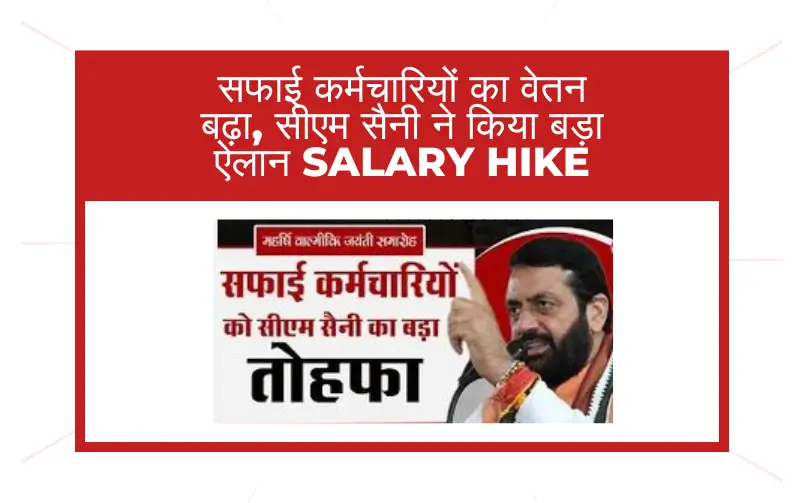In a move that has stirred debate across Haryana’s public sector landscape, the recent privatization planning by the state government has coincided with a notable cut in the salary hike proposed for CM engineers. While privatization as a policy is being positioned as a step toward efficiency and cost control, the simultaneous financial trimming of technical experts has triggered serious concerns.
This article takes an exclusive look at how increased privatization is affecting core government personnel, especially engineers, and what it signals for the future of public sector jobs in the state.
The Bigger Picture: Why Is Haryana Pushing for Privatization?
The government of Haryana has been strategically working on privatizing select public services since 2023 to reduce operational costs and bring in private expertise. From energy distribution and transport logistics to education support and healthcare, more state functions are gradually being handed over to private operators or outsourced through contracts.
Officials claim this will
- Streamline governance
- Introduce performance-based accountability.
- Minimize fiscal leakage
- Reduce administrative inefficiencies
However, this privatization planning comes with unintended ripple effects, particularly on long-serving professionals in the public sector like civil engineers, planners, and infrastructure managers.
CM Engineers’ Salary Hike Cuts: What Really Happened?
Earlier this year, engineers under the chief minister’s infrastructure projects team submitted a proposal for a routine salary revision based on performance metrics and inflation adjustments. Internally, the hike was expected to be around 12–15%.
However, the government sanctioned less than 5%, citing budgetary limitations aligned with its privatization roadmap. This was seen not as an isolated decision but as part of a calculated strategy to cap payroll spending in departments that are slowly being restructured or handed to private operators.
In short: Where privatization increases, long-term financial commitments to staff are being minimized.
Interconnected: Privatization & Payroll Shrinkage
There’s a pattern emerging. In multiple departments:
- New recruitments are being made via contractual appointments under the Haryana Kaushal Rozgar Nigam (HKRN).
- Senior permanent staff are being denied fair increments.
- Promotions are delayed or frozen.
- Departments are encouraged to outsource operations.
This shift is being described by insiders as a “quiet restructuring,” where engineering and technical staff are expected to deliver results while receiving shrinking rewards.
Employees Speak Out
Engineers impacted by the salary decision have raised concerns, stating that
- Their workload has increased, not decreased.
- They are managing privatized contracts, vetting tenders, and ensuring quality control.
- Despite this, their compensation is not reflecting their contributions.
A senior highway engineer remarked:
“Privatization isn’t reducing our work—it’s multiplying our responsibility. We’re now managing public infrastructure and private contractors. Yet we are being penalized with lower salaries.”
This contradiction has sparked unease, especially among mid-career professionals who joined the public sector for stability and dignity, not to watch their roles diluted over time.
Risks of Demotivating Core Engineers

Slashing financial incentives for engineers while pushing privatization could create several long-term issues:
- Decline in workforce morale
- Potential brain drain of skilled engineers to private firms
- Compromised quality of public infrastructure
- Resistance or disengagement from government-led initiatives
Without motivated and fairly compensated engineers, privatization may end up depending on the same workforce it is systematically devaluing.
The Policy Dilemma: Cutting Costs vs. Preserving Talent
The Haryana government is walking a thin line. While cost savings and improved service delivery through private players are valid goals, they cannot come at the cost of eroding public institutions.
If salary hikes, promotions, and recognition are cut back too harshly, it sends a message that long-term commitment to government service is no longer valued.
Policy experts suggest the government should
- Balance privatization with protective policies for key staff.
- Offer performance bonuses or contract management incentives.
- Build a transition strategy that respects institutional knowledge.
Future Ahead: What to Expect in 2025
Based on current trends, here’s what may unfold:
- Further privatization of engineering support, with more private contractors managing public infrastructure
- Increased use of contractual staff through HKRN to replace retiring or resigning engineers
- Growing friction between permanent staff and new governance models
- Demands from unions to set up a “core engineer cadre” protected from privatization fallout
Final Thoughts
The recent decision to cut CM engineers’ salary hike in the name of privatization planning reflects a deep structural shift in how Haryana views public sector employment. While administrative innovation is necessary, it must not overlook the role of experienced technical minds who hold the state’s development backbone together.
If privatization increases while public employees are sidelined, the state risks weakening the very foundation it is trying to reform.